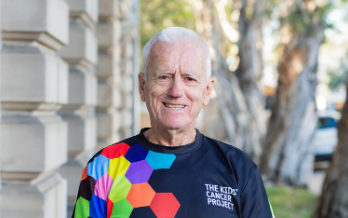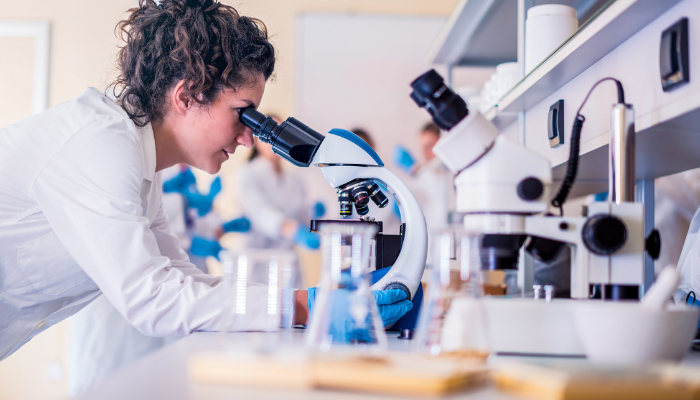
Recipient: Philipp Graber
Institute: Children’s Cancer Institute
Funding: $25,000.00
Philipp Graber's PhD uses 3D bioprinting technologies to study paediatric high-grade gliomas, an aggressive type of childhood brain cancer. On receiving his Masters in Drug Sciences from the University of Basel, Switzerland, he specialised in viral cancer therapy. Before embarking on a PhD, Philipp expanded his knowledge in bioinformatics at the University of Bern and the Swiss Bioinformatics Institute. Philipp’s International Postgraduate Award from the University of New South Wales enabled his relocation to Australia, where he continues his childhood cancer research at the Children's Cancer Institute.
Motivation
My path towards childhood cancer research began during my time as a youth football coach. Seeing the joy in children when they played made me realise how important it is to have a carefree childhood. Cancer is a profoundly devastating illness that not only impacts the child but also takes a toll on their loved ones.
It’s my strong belief that every child should be able to live without the burden of worrying about their health and have the freedom to pursue their passions. When I was presented with the opportunity to undertake research in childhood cancer, I knew it was the right path for me to contribute and help. I hope our research can make a difference and give more kids a chance to live without the burden of cancer.
Wanting to do more
My initial inspiration came from my parents, who work in the medical field. Their stories and experiences fostered my interest in this area from an early age. During my undergraduate studies, we had the opportunity to hear from professionals working at the cutting edge of cancer research. I found it captivating to learn about the new developments and innovations in the field, particularly in the creation of more advanced models to study diseases. These experiences solidified my decision to pursue a PhD degree in this field.
As a PhD student at the Children’s Cancer Institute, I'm currently involved in research focused on childhood high-grade gliomas, a type of highly aggressive brain cancer. This disease has been proven challenging to treat, often resulting in a dismal prognosis. A better understanding of tumour biology and its resistance to drugs is urgent for the development of better therapeutic strategies.
Bioprinting Technologies
Using cutting-edge 3D bioprinting technologies and patient samples we are creating novel 3D brain tumour models. The objective behind these innovative models is to better capture the nature of these tumours. Ultimately, we hope these models will help us test different treatments more accurately than with current models and in a clinically relevant timeframe.
While survival rates for some types of paediatric cancer have improved dramatically over recent decades, many high-risk childhood cancers still have a very poor survival rate. Our project aims to significantly improve outcomes for children with aggressive brain cancer by developing and implementing personalised treatments, which are tailored to each child's specific needs.
Our project involves creating 3D bioprinted tumour models using patient-specific tumour material. These models present a sophisticated platform for identifying the most effective therapies for each child, thus improving their chances of overcoming the disease. Through a better understanding of how these cancers develop resistance to treatments, we can discover new approaches and devise personalised treatment plans for all affected children. Our research doesn't just aim to improve survival rates among children with aggressive tumours, but also to avoid the use of ineffective treatments, thereby reducing the long-term adverse effects of such drugs.
Col Reynolds Fellowship PhD Scholarship
It is a great honour to be the recipient of the inaugural PhD Scholarship and a validation of my work and dedication to childhood cancer research. The scholarship offers a level of financial support that enables me to fully focus on my research during my PhD studies. Moreover, the scholarship enhances my academic experience by offering funding opportunities to network with fellow researchers and establish collaborations at both national and international conferences.
Thank You!
I want to sincerely thank everyone who donated to The Kids' Cancer Project. Your generous contributions help me focus on my important research. Each donation brings me closer to my mission of making a real difference in the lives of children with cancer.
Find out more about the Col Reynolds Fellowship
With an investment of over $7.6 million, The Kids’ Cancer Project is ensuring that some of the best and brightest young researchers in Australia can further their careers and most importantly, their impact on childhood cancer research.


Read more from past recipients
From a field of outstanding candidates across Australia, The Kids’ Cancer Project has funded the next generation of childhood cancer researchers. Their science-backed research is sure to deliver breakthroughs across a range of areas relating to childhood cancer.
